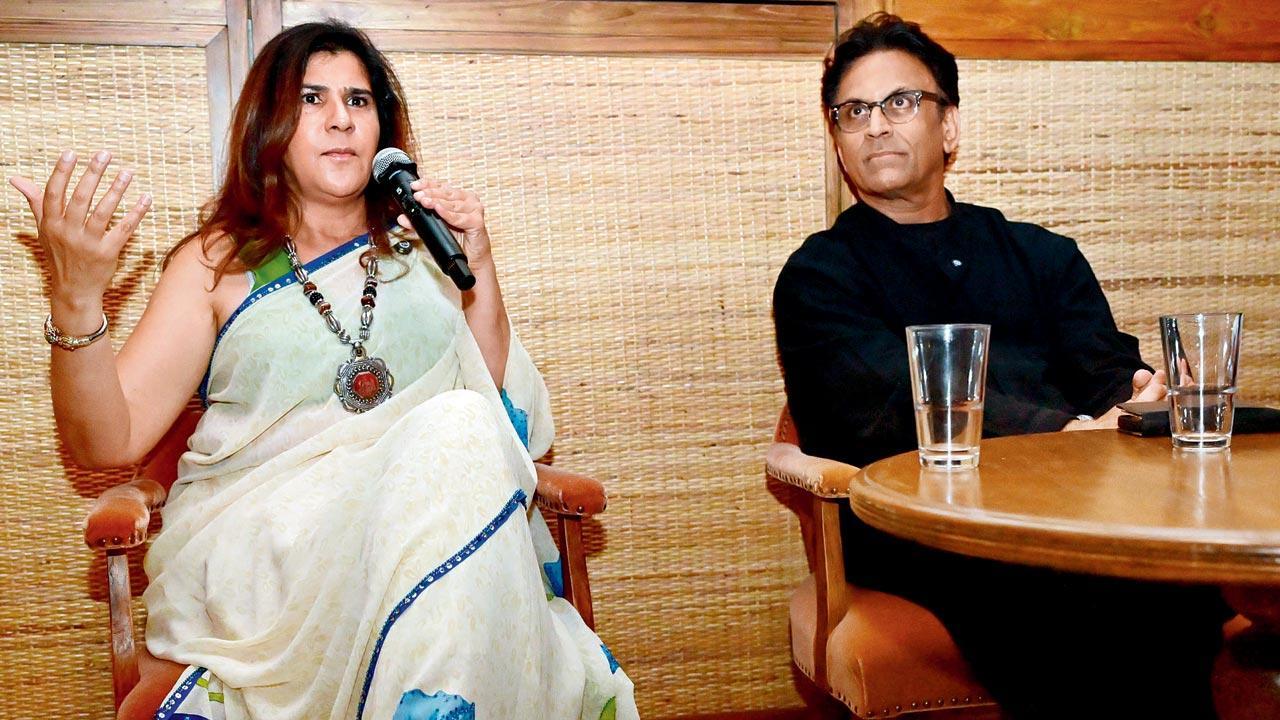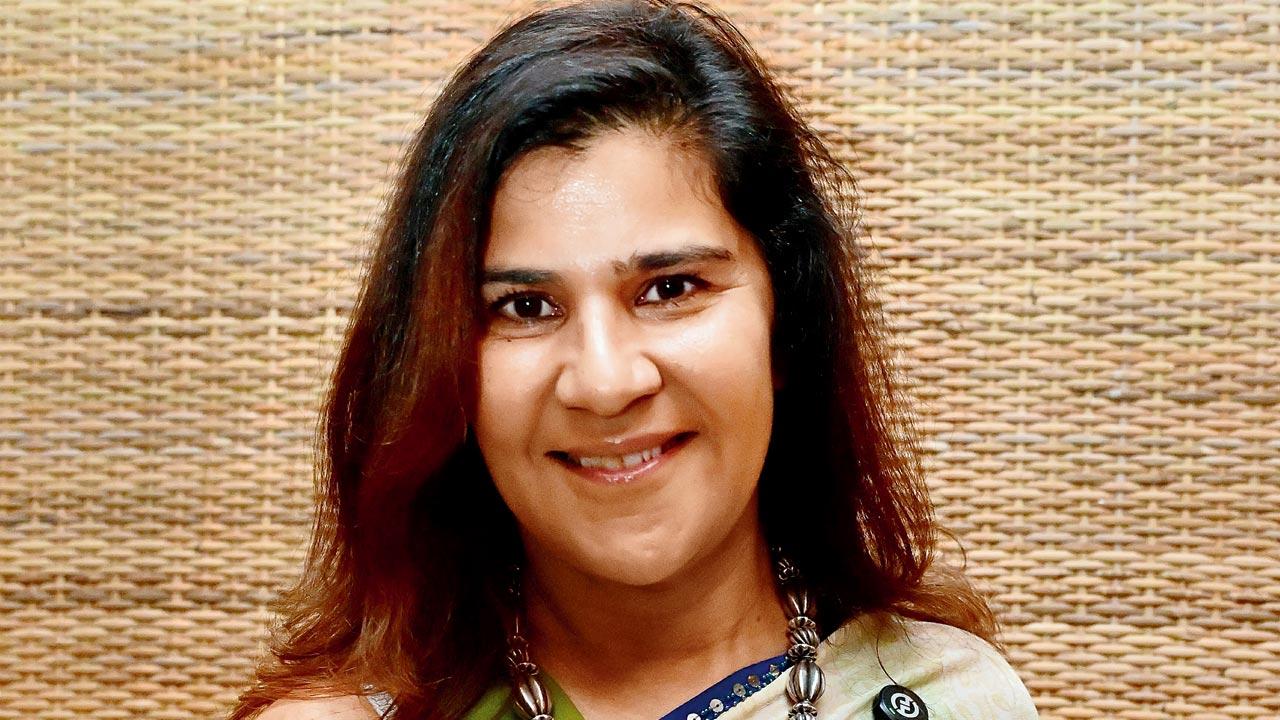A book on the Jallianwala Bagh massacre is a marriage between history and fiction; Ram Madhvani has directed a web series exploring the incident

Reenita Hora (L) and film director Ram Madhvani at Soho House. Pics/Shadan Khan
Reenita M Hora, a former Mumbai resident now based in San Francisco, and film director Ram Madhvani said in response to an opening question that they had different triggers for their work on the Jallianwala Bagh massacre.
Hora, whose recent book—Vermilion Harvest (Jaico)—is about the massacre in Amritsar with characters that are fictional, said, was born because, “I have had the story in my head and my DNA for 35 years. I remember my nana (maternal grandfather) telling me that he used to pass the site as a boy, and what struck him most was the mountain of chappals (slippers) outside that place.”
 Reenita Hora, author
Reenita Hora, author
Hora was talking at a fireside chat with Madhvani at Soho House, Juhu, late Thursday evening. The chat was titled ‘Reimagining Jallianwala: History Through Fiction & Film.’ Madhvani has directed ‘The Waking of a Nation,’ a web series exploring the Jallianwala Bagh massacre.
Madhvani said of the impetus for his web series, “Years ago I was flying to London along with my mother. I wanted to cross over to go ahead to another aisle in the aircraft and asked a white man whether I could pass. ‘Sit down, you brown bastard,’ he said to me. That has stayed with me all through. I have spoken about this before,” he explained as his audience listened in shocked silence.
Historical fiction
When asked about the title of her book, ‘Vermilion Harvest,’ Hora said, “The literary world is not forgiving. A book’s title and cover make you or break you.” “I think the adage do not judge a book by its cover (taking it literally) is rubbish,” she said to some laughs.
“Vermilion is the colour of blood and life. Harvest is because the massacre took place on Baisakhi/Vaisakhi, marking the beginning of the harvest season,” she explained. Hora added, “The book is historically accurate. Yet, the love story in the book has fictional characters. There is also a difference between a love story and a romance. The latter meets a set formula, and there is a ‘happily ever after’ or an end that says happily as of now. A love story can be a tragedy too.”
The struggle
The compact audience listened rapt as Hora explained that she wanted her book to be a story told “through the lens of the victim or the subjugated; through the women, as these voices are rarely heard in the historical context. History, too, is usually written by the victor”.
The chat segued into some banter about mansplaining and about ‘history’ being ‘his-story,’ never ‘her-story.’ This narrative flips that with women finding their voice in the book.
To a question about what research for the book had taught her, if it had impacted her in any way, Hora said, “The research did show me how much of our history is mansplained.” With that came the question about freedom and what Hora thought was the true meaning of freedom, to which she said, “Living life on your own terms.” That brought the curtains down on a stimulating evening with the realisation that there are different meanings to freedom.
Jallianwala Bagh was the pivotal moment that sparked India’s freedom struggle. We all have our freedom struggles too, which may never make it to books or on celluloid. That struggle may be against stereotypes, limitations whether self-imposed or from outside, or even demons within. Yet at the core, freedom struggles in different dimensions have an aim: about setting the soul and spirit free to soar.
April 13
Day Jallianwala massacre took place in 1919
Jallianwala Bagh
The Jallianwala Bagh massacre, also known as the Amritsar massacre, took place on April 13, 1919. A large crowd had gathered at the Jallianwala Bagh in Amritsar, Punjab, British India, during the annual Baisakhi fair to protest against the Rowlatt Act and the arrest of pro-Indian independence activists Saifuddin Kitchlew and Satyapal.
Temporary Brigadier General REH Dyer surrounded the people with his Gurkha and Sikh infantry regiments of the British Indian Army. After blocking the exit with his troops, Dyer ordered them to shoot at the crowd, continuing to fire even as the protestors tried to flee. Estimates of those killed vary from 379 to 1500 or more people; over 1200 others were injured, of whom 192 sustained serious injury.
 Subscribe today by clicking the link and stay updated with the latest news!" Click here!
Subscribe today by clicking the link and stay updated with the latest news!" Click here!








